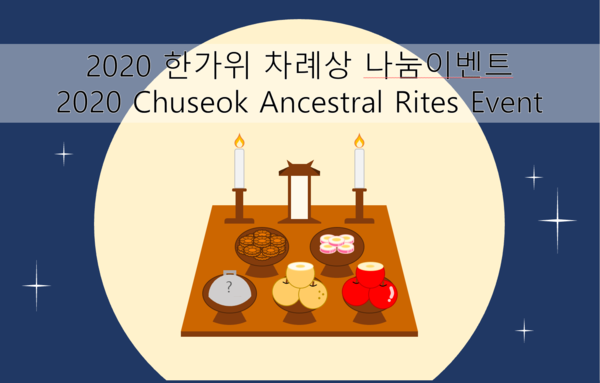Several KAIST organizations hosted activities over the Chuseok holidays to discourage traveling and console school-ridden students during COVID-19 restrictions. On September 16, a message from the Provost and Executive Vice President Kwang-Hyung Lee requested that students “refrain from traveling during the holiday season [as it] is the most effective way to dampen the momentum of COVID-19". Many international students remained on campus as going back home or vacationing was not possible. In response, KAIST organized special events and made accommodations to support and cheer up the students who spent the holidays alone.

The first of these efforts was to open the cafeterias and other amenities to facilitate on-campus living during the holidays, during which many restaurants on and off-campus are normally closed. The west cafeteria (W2) and Subway remained open for the entirety of the five-day vacation. The west cafeteria also held a songpyeon event on October 1, the day of Chuseok. 150 students were given free songpyeons — traditional Korean rice cakes made and eaten during the harvest holiday — on a first come, first serve basis. In addition, the KI House hosted its annual songpyeon making event with Korean teachers for international students from September 22 to 25.
For students who decided to visit home, the Student Welfare Team took a survey in order to accommodate buses and minimize outside contact while travelling between cities. Buses to different regions of Korea were arranged according to demand and students could reserve a spot from September 16 to 19.
Finally, the KAIST International Students Association (KISA) and the KAIST Buddhism Club collaborated for a special Chuseok Korean Ancestral Rites event. The students who applied were given gift sets for jesa, traditional Korean ancestral rites, that included byung-poong (foldable paper screen), traditional jesa fruits (apple, pear, chestnut, jujube, and dried persimmon), and a variety of traditional Korean sweets. Students were encouraged to decorate the byung-poong, set up the food in a traditional manner, and remember their loved ones who have passed away. Afterwards, students could upload a photo of their jesa-sang to enter a photo contest in which all participants received small gifts, with a special prize for the winner. One of the participants, a second-year student in the Department of Chemistry, Cinthya Paulina remarked, “I think it was interesting and we learned more about the Chuseok culture and [were able to] experience it ourselves.” She added that “since international students cannot go home, the event was [rather] heartwarming for us, too.”

